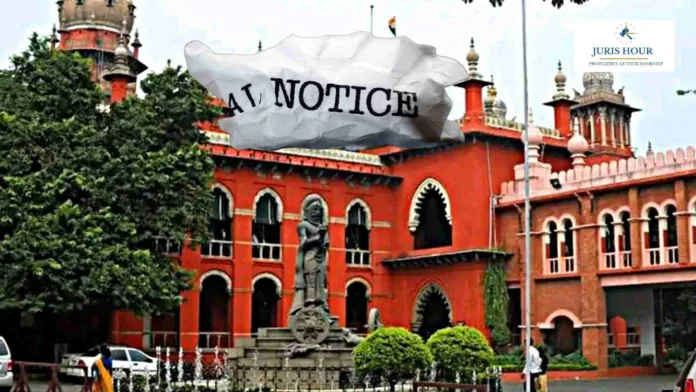The Madras High Court has held that notice served through the Goods and Service Tax (GST) portal is ‘sufficient’ service, but not ‘effective’ service.
This is another order in quick succession to M/s.Poomika Infra Developers Versus State Tax Officer, interpreting the provisions of Section 169 of the GST Act and service through GST common portal.
In the case of M/s.Poomika Infra Developers Versus State Tax Officer the bench of Justice Mohammed Shaffiq has observed that the service of notices and orders through GST portal is a valid mode of service and rejects the argument that the GST portal is not a “designated computer resource of the assessee” and hence as per Section 13 (2) (a) (ii) of the Information Technology Act, receipt occurs only when the communication is retrieved.
The bench of Justice Krishnan Ramasamy has observed that extensively referred to the provisions of the Information Technology Act and concluded, while service through a portal is “sufficient” service, it is not “effective” service”. If the taxpayer is not at all participating in the proceedings, even after repeated uploading of notices and reminders in GST portal, the Department should have resorted to other mode of service, viz., Registered Post with Acknowledgement Due (RPAD), so that considerable time of officers, assessees and the Court could be saved.
The bench set aside the impugned orders and gave another opportunity to the taxpayers, with suitable conditions of deposit in different circumstances.
Background
The petitioners had filed their reply, however, no opportunity of personal hearing was provided by the respondent prior to the passing of assessment orders. Hence, the said assessment orders were challenged by the petitioners on the ground that the orders had been passed in violation of principles of natural justice.
The appeals were preferred by the petitioners against the assessment orders, however, the appeals were rejected by the respondents on the aspect of limitation. Now, the challenge is made only against the ex parte assessment orders.
Conclusion
The court set aside the ex parte assessment orders. However, since the mode adopted by the respondent is sufficient mode, the petitioner had chances to view the portal and participate in the proceedings, but they had failed to do so.
Therefore, the Court is of the view that the fault is on both the petitioner as well as the department and thus set aside the orders.
Case Details
Case Title: M/s.Axiom Gen Nxt India Private Limited Versus Commercial State Tax Officer
Case No.: W.P.Nos.1114, 2720, 2723, 2819, 2832, 3084, 3097, 3119, 3288, 3487, 3493, 3498, 3501, 3510, 3593, 3595, 3598, 3623, 3671, 3777, 3782, 3923, 3926, 3929, 3945, 4015, 4032, 4056, 4104, 4296, 4403, 4430, 4459, 4463, 4576, 4707, 4711, 4840, 4848, 4854, 5038, 5055, 5437, 5561, 5633, 5687, 5806, 6000 & 6033 of 2025
Date: 22.04.2025
Counsel For Petitioner: R.Mansoor Ilahi
Counsel For Respondent: P.S.Raman, Sr. Adv.
Read More: CESTAT Upholds CENVAT Credit Availment Of Service Tax Paid On Advances





